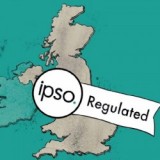 A weekly newspaper was justified in naming a mother and her dead child despite concerns the infant’s siblings could be identified, the press watchdog has ruled.
A weekly newspaper was justified in naming a mother and her dead child despite concerns the infant’s siblings could be identified, the press watchdog has ruled.
The Dover Express identified the child and mother in its report of a serious case review, published by a Children’s Safeguarding Board, which focused on the events leading up to infant’s death.
As well as identifying both parties in its report, the Express identified as the street address at which the child died, despite neither being named in the review.
The article had identified the deceased child as being the youngest of five children and had highlighted “more than ten opportunities” for agencies to intervene in the care of the children, their failure to act prior to the death of the youngest child, and lessons that could be learnt for the future.
Its publication prompted a woman, the custodial guardian of the four surviving siblings, to complain to the Independent Press Standards Organisation, claiming the article had identified the other children, three of whom shared the surname of the deceased child.
Complaining under Clause 1 (Accuracy), Clause 2 (Privacy) and Clause 6 (Children) of the Editors’ Code of Practice, she said that this was intrusive and unjustified.
Denying a breach of Code, the Express said that the mother’s conviction in relation to the death of her child had been an extremely high-profile case within the local area and noted that no reporting restrictions had been imposed during previous criminal proceedings, with the mother and child being widely named during that case.
The newspaper denied that the other siblings were identifiable from the article and said it had taken steps to protect the identity of the siblings by removing identifying details included in the safeguarding report, further noting that reporters had been permitted to refer to the woman as a “mother of five” during the court case.
It added there was a significant public interest in reporting on the review, which was in the public domain, adding it was journalistically unfeasible and unrealistic not to connect the serious case review to the previous court case.
IPSO found the key factual context from the review was that the mother had four older children, and that no action had been taken in relation to concerns raised about their welfare a number of years before the youngest child had died.
The reporting of the precise nature of the children’s “neglect”, and the impact upon them, enabled the Express to scrutinise the extent of the agencies’ alleged failings and hold them to account.
The Committee said this was an exceptional public interest which justified the publication of details from the report, adding there was also a specific public interest in identifying the mother and the child so that the public were able to understand the specific tragic consequences of the alleged failings in the context of previous reporting of the criminal proceedings.
The complaint was not upheld, and the full adjudication can be read here.





 Follow HTFP on Twitter
Follow HTFP on Twitter